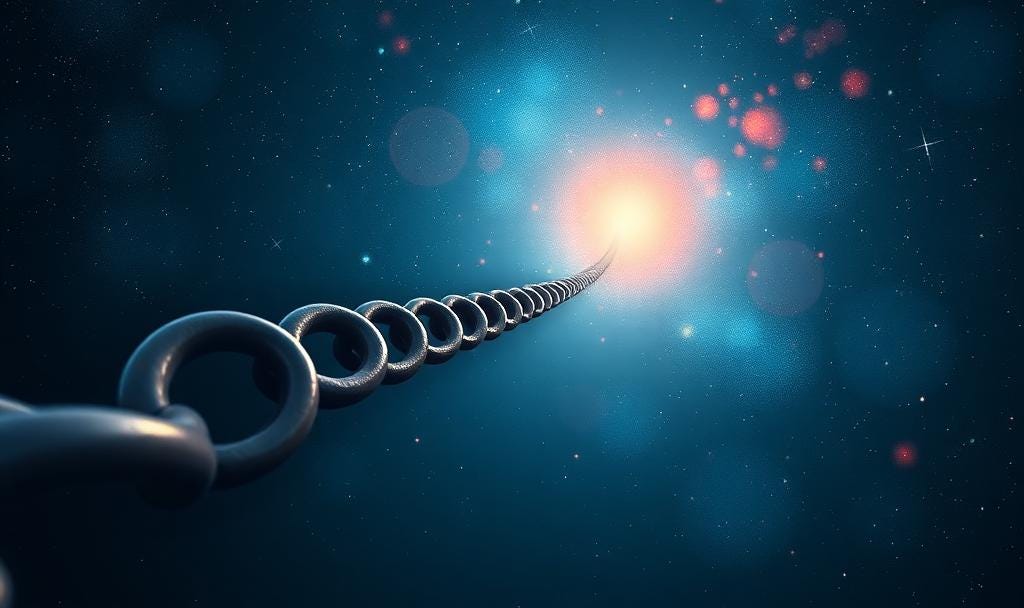The Problem of Causes and the Existence of God
A short reflection on a common philosophical dilemma — and why the idea of a first cause makes sense.
I had an interesting discussion with someone yesterday about the existence of God, specifically on the question of causes. My friend raised a thoughtful objection: he finds it unreasonable to believe in an infinite chain of causes — since, in his words, an infinite regress seems incompatible with reason. Yet at the same time, he struggles with the idea of a finite chain of causes, because that would require a first cause — something that itself has no beginning — and, as he pointed out, nature offers no example of anything without a beginning.
I find his dilemma very understandable. But I believe the solution lies precisely in recognizing the nature of a finite chain of causes: by definition, it necessarily requires an exception — a first cause that is itself uncaused. Otherwise, the chain wouldn’t truly be finite.
Now, for such a first cause to exist, it would be fundamentally different from everything that follows from it. For example, if this first cause created the universe and all matter, then it cannot itself be material. Hence, the first cause must be immaterial; and, being immaterial, it is not accessible through the senses, nor empirically detectable by instruments.
In short, once we reject an infinite regress, we are left with the need for a first cause. And since this first cause brought all matter into existence, it must be fundamentally unlike anything we observe in the caused material and contingent universe. The first cause must be uncaused, immaterial and non-contigent (necessary). This is what many people call God.

